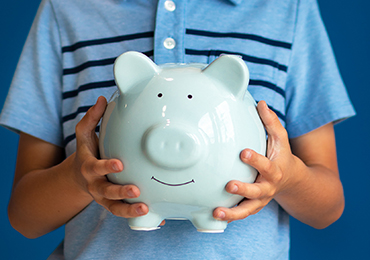As a result of COVID-19, millions of Americans will be seeking financial relief from the “Coronavirus Aid, Relief, and Economic Security Act” or the “CARES Act.” Unfortunately, it’s also the latest opportunity for bad folks to try to steal data, money, or identifications.
It’s important to do your research before clicking on links appearing to provide information on the coronavirus; donating to a charity online or through social media; contributing to a crowdfunding campaign, purchasing products online, or giving up personal information to receive money or other benefits.
Read more on the Right at the HEART Blog, here.
IRS Urges Taxpayers to Watch Out for Erroneous Refunds; Beware of Fake Calls to Return Money to a Collection Agency
WASHINGTON – The Internal Revenue Service today warned taxpayers of a quickly growing scam involving erroneous tax refunds being deposited into their bank accounts. The IRS also offered a step-by-step explanation for how to return the funds and avoid being scammed.
Following up on a Security Summit alert issued Feb. 2, the IRS issued this additional warning about the new scheme after discovering more tax practitioners’ computer files have been breached. In addition, the number of potential taxpayer victims jumped from a few hundred to several thousand in just days. The IRS Criminal Investigation division continues its investigation into the scope and breadth of this scheme.
These criminals have a new twist on an old scam. After stealing client data from tax professionals and filing fraudulent tax returns, these criminals use the taxpayers' real bank accounts for the deposit.
Thieves are then using various tactics to reclaim the refund from the taxpayers, and their versions of the scam may continue to evolve.
Different Versions of the Scam
In one version of the scam, criminals posing as debt collection agency officials acting on behalf of the IRS contacted the taxpayers to say a refund was deposited in error, and they asked the taxpayers to forward the money to their collection agency.
In another version, the taxpayer who received the erroneous refund gets an automated call with a recorded voice saying he is from the IRS and threatens the taxpayer with criminal fraud charges, an arrest warrant and a “blacklisting” of their Social Security Number. The recorded voice gives the taxpayer a case number and a telephone number to call to return the refund.
The IRS urged taxpayers to follow established procedures for returning an erroneous refund to the agency. The IRS also encouraged taxpayers to discuss the issue with their financial institutions because there may be a need to close bank accounts. Taxpayers receiving erroneous refunds also should contact their tax preparers immediately.
Because this is a peak season for filing tax returns, taxpayers who file electronically may find that their tax return will reject because a return bearing their Social Security number is already on file. If that’s the case, taxpayers should follow the steps outlined in the
Taxpayer Guide to Identity Theft. Taxpayers unable to file electronically should mail a paper tax return along with Form 14039, Identity Theft Affidavit, stating they were victims of a tax preparer data breach.
Here are the official ways to return an erroneous refund to the IRS.
Taxpayers who receive the refunds should follow the steps outlined by
Tax Topic Number 161 - Returning an Erroneous Refund. The tax topic contains full details, including mailing addresses should there be a need to return paper checks. By law, interest may accrue on erroneous refunds.
If the erroneous refund was a direct deposit:
1. Contact the Automated Clearing House (ACH) department of the bank/financial institution where the direct deposit was received and have them return the refund to the IRS.
2. Call the IRS toll-free at 800-829-1040 (individual) or 800-829-4933 (business) to explain why the direct deposit is being returned.
If the erroneous refund was a paper check and hasn't been cashed:
- Write "Void" in the endorsement section on the back of the check.
- Submit the check immediately to the appropriate IRS location listed below. The location is based on the city (possibly abbreviated) on the bottom text line in front of the words TAX REFUND on your refund check.
- Don't staple, bend, or paper clip the check.
- Include a note stating, "Return of erroneous refund check because (and give a brief explanation of the reason for returning the refund check)."
The erroneous refund was a paper check and you have cashed it:
- Submit a personal check, money order, etc., immediately to the appropriate IRS location listed below.
- If you no longer have access to a copy of the check, call the IRS toll-free at 800-829-1040 (individual) or 800-829-4933 (business) (see telephone and local assistance for hours of operation) and explain to the IRS assistor that you need information to repay a cashed refund check.
- Write on the check/money order: Payment of Erroneous Refund, the tax period for which the refund was issued, and your taxpayer identification number (social security number, employer identification number, or individual taxpayer identification number).
- Include a brief explanation of the reason for returning the refund.
- Repaying an erroneous refund in this manner may result in interest due the IRS.
IRS mailing addresses for returning paper checks
For your paper refund check, here are the IRS mailing addresses to use based on the city (possibly abbreviated). These cities are located on the check’s bottom text line in front of the words TAX REFUND:
- ANDOVER – Internal Revenue Service, 310 Lowell Street, Andover MA 01810
- ATLANTA – Internal Revenue Service, 4800 Buford Highway, Chamblee GA 30341
- AUSTIN – Internal Revenue Service, 3651 South Interregional Highway 35, Austin TX 78741
- BRKHAVN – Internal Revenue Service, 5000 Corporate Ct., Holtsville NY 11742
- CNCNATI – Internal Revenue Service, 201 West Rivercenter Blvd., Covington KY 41011
- FRESNO – Internal Revenue Service, 5045 East Butler Avenue, Fresno CA 93727
- KANS CY – Internal Revenue Service, 333 W. Pershing Road, Kansas City MO 64108-4302
- MEMPHIS – Internal Revenue Service, 5333 Getwell Road, Memphis TN 38118
- OGDEN – Internal Revenue Service, 1973 Rulon White Blvd., Ogden UT 84201
- PHILA – Internal Revenue Service, 2970 Market St., Philadelphia PA 19104




